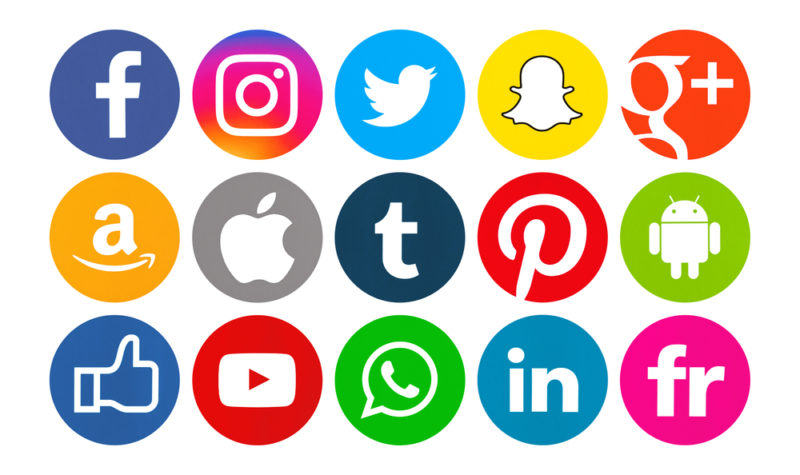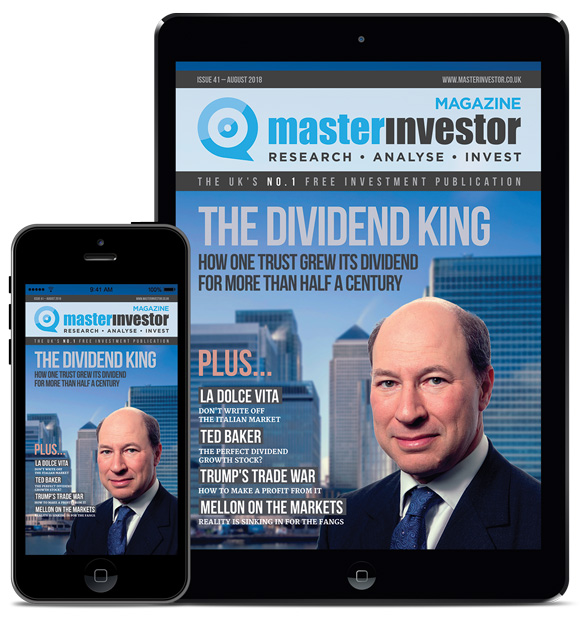Not all FAANGs are the same – some have more teeth than others

Just over a week after Facebook lost a fifth of its value in a day, Apple became the first trillion dollar company. Clearly, there is not one thing called “tech”. Has the tech sector come to a parting of the ways?
Facebook and Apple: A tale of two cities

Never miss an issue of Master Investor Magazine – sign-up now for free! |
On 25 July Facebook (NASDAQ:FB) had a bad day. The company’s shares opened at $217.50 and closed at $174.89. That was a drop of 19.6 percent in its market value. So on that fateful Wednesday the company was worth $629.6 billion in the morning but $506.2 billion – $123.4 billion less – in the evening. That loss is roughly equivalent to the value of all the bitcoins in the world at the current valuation. Mr Zuckerberg, the company’s T-shirted founder and CEO found himself $16 billion poorer that day.
Even when compared with other tech companies the drop in Facebook’s market cap is mind-blowing. Netflix (NASDAQ:NFLX) has a market cap of about $146.5 billion as I write while Twitter (NASDAQ:TWTR) is a tech minnow at just $25 billion – its shares are 27 percent down from their peak on 14 June. (They lost one million users in Q2.) The diminutive Snap (NYSE:SNAP) is worth just $15.8 billion.
Back in March when the Cambridge Analytica scandal broke, something similar but less drastic happened. On 20 March Facebook lost about five percent of its value as the stink of reputational damage intensified. But this time there was no scandal, no hints of electoral interference or misuse of user data – rather something more old-fashioned. Facebook reported disappointing earnings data and indicated that its user numbers had stalled for the first time ever.
There were barely any more daily users at the end of Q2 than in Q1. In Europe, the number of people who log onto Facebook every day actually declined, partially no doubt as a result of the EU’s General Data Protection Regulation (GDPR). Facebook has even changed the way it counts its own users. For the first time, the company shared a new family of apps metric. There are 2.5 billion people using at least one of the company’s four platforms — Facebook, Instagram, Messenger and WhatsApp. That’s about one third of the planet’s population.
It’s true that Facebook use by the younger demographic has been declining for some time: but this has been more than compensated for by the growth of Instagram, the purely visual format which appeals most to the young. It seems likely that many youngsters are fleeing Facebook precisely because their parents and grandparents have fallen under its spell. According to Pew Research, only 51 percent of Americans between 13 and 17 use Facebook – down from 71 percent three years ago. But 71 percent of that demographic use Instagram. The problem is that some analysts don’t think that Instagram will ever generate as much advertising revenue as the Facebook portal.
On 02 August, Apple (NASDAQ:AAPL) had an excellent day. The moment its shares hit around $207 its market cap at last exceeded the touchstone $1 trillion mark. (Let’s recall that a trillion is 1,000 billion!) It is the first corporation to have done this. Founded some 42 years ago, the company is now the largest and richest in the world and is an iconic brand with global reach.
Apple’s shares have been consistently rising since the spring of this year as the company announced further share buy-back programmes – financed from its massive cash pile, much of which is moving back to the USA from offshore jurisdictions since the Trump administration’s cut in corporate profit taxes last January. But the proximate cause of the company’s share price jump in the first week of August was better-than-expected earnings data. On 01 August Apple announced profits of $13.8 billion (32 percent up on the previous year) on $61.1 billion in revenue (17 percent up).
This market cap calculation is based on Apple’s share count on 20 July (4.83 billion) – though some analysts have questioned that number given the company’s rapid pace of share buybacks.
Recently, a number of influential investors have lost faith in the US tech giants as a one-way bet. Not least our own Chairman, Jim Mellon, who in the August edition of MI Magazine pointed out that the FAANGs accounted for almost all of the US market’s outperformance vis-à-vis Europe in recent years. If the techs are overvalued (as many believe) and if there is a correction on the way (as many, like Jim, foresee) then the decline of the techs would be hugely consequential for the markets overall.
But, as the contrasting fortunes of Facebook’s and Apple’s share prices show – “tech” is not one thing. Facebook (social media – arguing, showing off, raising the profile of a cause about which you are passionate) is distinct from what Apple and Google now are (all the information, knowledge, music and fitness apps in the world). Which model has better prospects?
To be continued…
Comments (0)